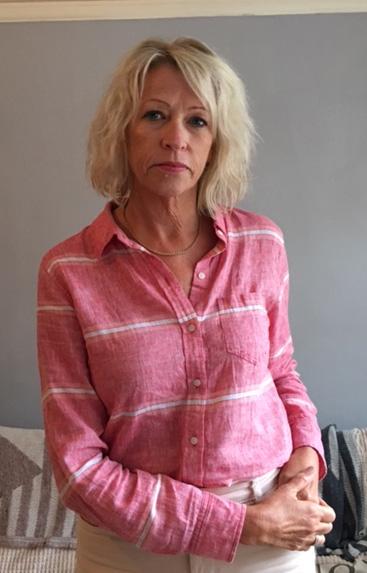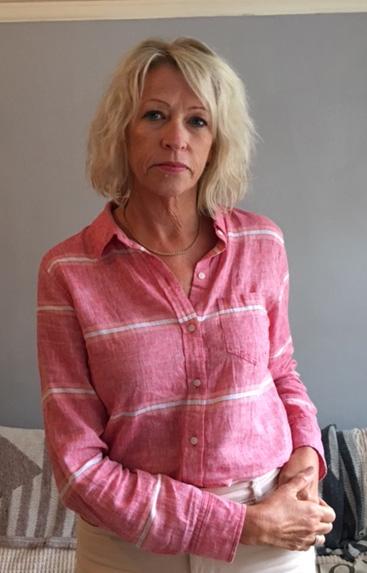
Credit: University of Portsmouth
A new study examining breast cancer awareness in India has found that a lack of early diagnosis is leading the country towards an epidemic. They found that educating men could be key to encouraging women to seek help earlier.
The research, which is the first of its kind to look at breast cancer awareness in India, found that cultural and religious issues mean that women don't access health services, are reluctant to consult male doctors, neglect their own health due to family obligations and are over-dependent on other family members to seek medical help, all of which causes delay in diagnosis.
The study found that traditional marketing campaigns don't work for raising awareness of the disease and that community nurses are the most effective channel. These community nurses, who are trusted in the community and by male members in the family, represent one of the best channels of fostering a greater understanding by men about early symptoms and diagnosis. The study is published this week in the Journal of Business Research.
The research highlights the significance of the country's rapid economic development, leading to greater urbanisation, which is leading some women towards a western lifestyle resulting in a rise of breast cancer rates. It describes the issue as one of the biggest health threats facing India today.
Judith Fletcher-Brown, from the University of Portsmouth, visited the country to explore the unique social, economic, cultural and institutional challenges in this emerging economy. She learned that in India's cities and urban areas, breast cancer is the most commonly diagnosed type of cancer among women. 70,218 Indian women died of breast cancer in 2012 and deaths from the disease are predicted to increase to 76,000 in 2020 with an average age of incidence shifting to 30 years from 50 years. Yet women seek medical care extremely late due to lack of awareness about self-examination and cultural barriers.
Judith interviewed several women by email about their experiences in order to elicit the most open answers to her questions. One participant said that even among friends they are too shy, although there is more openness between mothers and daughters.
Judith said: "India is still a patriarchal society and while women are now in responsible jobs and earning for their families, it's the men who are still the head of the household. Even educated professional women do not discuss private matters about their bodies with their husbands, fathers or brothers so it's essential to direct health messages towards men to increase their awareness of and willingness to discuss the problem. Their understanding is pivotal in enabling female family members to access medical help at the earliest stage."
She also ran focus groups with experts from various breast cancer medical practitioners.
"They told us that in India the subject is taboo and rarely discussed within the family, between men and women or even between husband and wife."
She found that community health nurses had the greatest impact in raising awareness of early breast cancer symptoms with both men and women. These Accredited Social Health Activists (ASHAs) are embedded in the community and are far more effective than national advertising campaigns in overcoming cultural barriers because they have the trust of husbands and fathers as well as the women at risk.
The study showed that schools are the second best channel through which to raise awareness in young women, and in third place was the media, which has seen some success in raising awareness through charity initiatives in the country. Traditional marketing campaigns were one of the least effective channels.
Judith, from the Department of Marketing and Sales, highlighted the Westernisation of Indian women as a key issue caused by the country's burgeoning economy: "Women are having fewer children later in life and breast feeding them less which increases their chance of developing the disease. Working women in urban India often have a more western diet leading to obesity which also increases the risk alongside a lack of infrastructure for early diagnosis.
"The emerging economy of India has presented women with new found economic independence and career opportunities but the lack of breast cancer awareness campaigns puts even these educated women at risk."
The Indian government recognises the problem and has invested money in marketing campaigns via non-governmental organisations (NGOs). But the research indicated that such campaigns are not reaching the target audience.
India's crisis especially manifests in the thriving cities of Mumbai, Delhi, Bengaluru, Bhopal, Kolkata, Chennai and Ahmedabad, where employment opportunities for women are increasing. A recent report identified the significance of employing more women in India could add $2.9 trillion to India's annual GDP by 2025. A healthy female Indian workforce is crucial if the country is to benefit from its demographic advantage and sustain its thriving economy.
Professor Vijay Pereira, second author on the paper, said that the magnitude of the problem is enormous and has major policy implications for the Indian government, who he is urging to tackle the problem with better targeted campaigns.
He said: "Our findings reveal complex challenges at national, state and community levels. What is clear is that the state healthcare sector must transform itself to deliver quality breast cancer healthcare and awareness underpinned by effective use of social marketing campaigns. This research presents several proposals that would assist health marketers working in India's emerging economy."
###
The paper is published in the Journal of Business Research, entitled: Health marketing in an emerging market: The critical role of signalling theory in breast cancer awareness. The authors are Judith Fletcher-Brown from the University of Portsmouth and Professor Vijay Pereira and Dr Munyar Nyadzayo from the University of Wollongong in Dubai.
Media Contact
Lisa Egan
[email protected]
0239-284-2780
http://www.port.ac.uk
Original Source
http://uopnews.port.ac.uk/2017/08/14/breast-cancer-study-in-india-shows-how-the-country-can-avoid-crisis/





